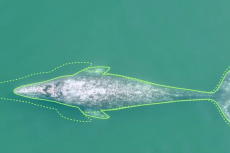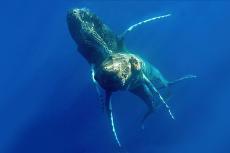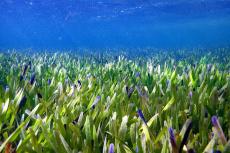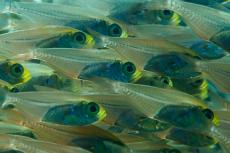For all the Lost Sharks
A review of the status of sharks was published today, entitled Shark Fishing vs Conservation: Analysis and Synthesis.
It was found that with traditional fish stocks 90% overfished, sharks (along with tuna) have become the most lucrative prey for fisheries due to the value of their fins. So, with fishing scarcely profitable any more, fishing fleets around the world have joined in the hunt for them. The meat is pushed onto consumers using other names, so it is largely the shark fin trade that drives the so-called market for shark meat.
As a result, those species of sharks and rays accessible to fishing fleets are approaching extinction.
Further, the removal of these top and middle predators has resulted in drastic, long-term changes in oceanic and coastal ecosystems—a complete rebalancing. Yet most ecosystem changes remain unknown and are not taken into account by Regional Fisheries Management Organizations.
The shark fin trade is driven by high prices and rich customers who have little interest in either sustainability or legality. This rising demand, contrasted against the catastrophic loss of the large animals supplying it, makes it evident that shark fishing is not sustainable. What has been going on in the North Atlantic Ocean, in the heart of the 'civilized' western world, is analysed in detail to make this clear.
However, due to the uncertainties involved in assessing how many sharks are being fished and how many remain, it is easy for shark hunting nations, and shark fishing industry spokesmen, to argue against sharks and rays receiving effective protection.
Fisheries take a territorial attitude to marine resources and consider themselves to have the right to continue to take them, irregardless of the disastrous losses they have already suffered and the profits that fisheries have already realised.
We show that the sustainable shark fishing lobby is defending sustainable shark fishing, not against unsustainable shark fishing, but against effective protection for sharks. Pro-sustainable shark fishing 'scientists' recommend sustainable shark fishing but do not state when the use of the "resource" would become unsustainable.
Since it is virtually impossible to assess the true losses sharks have suffered, their arguments are easy to make for they cannot be disproven. But it is estimated that shark mortality is at least four times what is recorded by fisheries' organizations, and may be much greater than that, given the secretive nature of the shark fin trade, as well as prolific illegal, unreported, and unregulated fishing.
The point that fishermen are in the same position as any other predator that is eliminating its prey, is made. The human species is overpopulated and we have known for decades that the moment would come when no wild prey could sustain us.
The domination by industry must end if the planet’s aquatic ecosystems are to be saved from ecological collapse, specifically as a result of fishing. If history has taught us anything, no wild animal can withstand targeted industrial-scale hunting long term—not whales, not sea turtles, not fish, and certainly not sharks.
Conclusions
In conclusion, the paper recommends that all sharks, manta rays, devil rays, rhino rays, and chimaeras be protected from international trade through a CITES Appendix I listing. This would keep markets for sharks local, thus favouring small-scale fishing. It would also simplify customs' work at border crossings by removing the problem of identifying all the different look-alike species.
Fishing efforts must be drastically diminished to permit the damaged ecosystems of oceans, coral reefs, lagoons, mangroves, estuaries, rivers, lakes, and coastlines to recover.
Fishing subsidies must end. The money should be used instead to help fishermen switch to other occupations, including planting food crops.
Thirty percent of the oceans should be set aside as Marine Protected Areas in which there would be no fishing.
There must be a change in fishing methods away from today's unselective gear--including trawling, purse-seining, gill-netting, and long-lining--to methods that avoid by-catch including sharks, completely.
A change in attitude concerning eating wild fish as protein is needed so that people pay a reasonable price for such high-quality food and fishers will be able to make enough money from their sustainable catches to live on.
The pervasive problem of illegal, unreported, and unregulated fishing should be addressed globally, through all means available.
Regional Fishing Management Organizations should be required to respect human rights, and to address slavery, as well as unsafe and inhumane working conditions. At their own expense, they should be required to keep track of stocks through stock assessments by species and geographic region, update them regularly, and mandate catch limits. Landings should be monitored, and species-specific records kept.
But what is needed most is a binding international treaty to protect biodiversity in general.
Ila France Porcher
Author of The Shark Sessions and The True Nature of Sharks

























